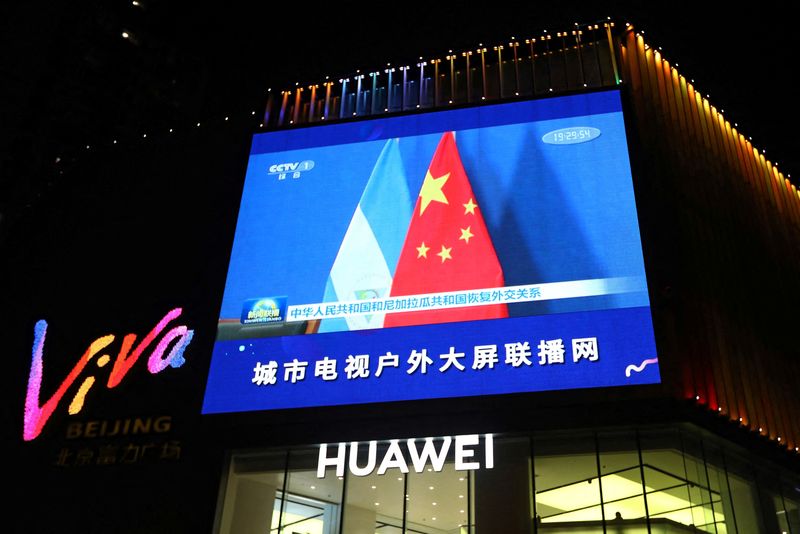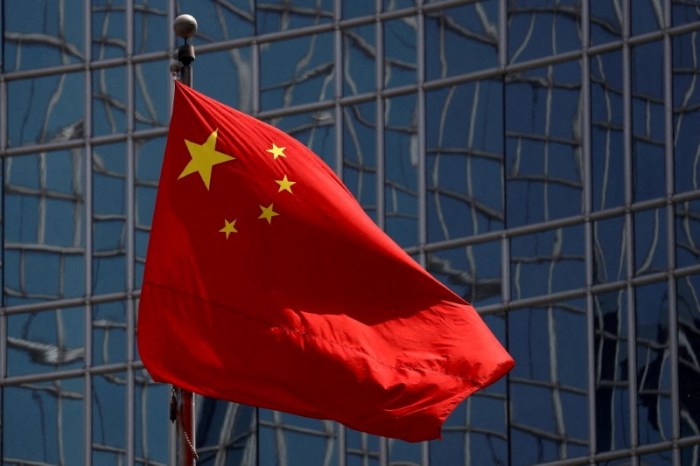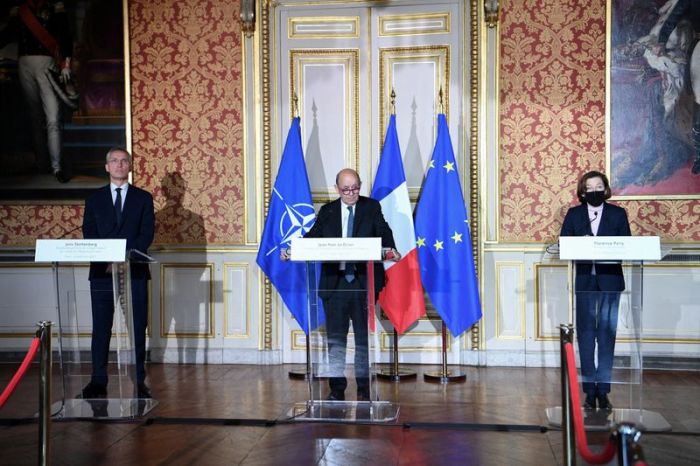WASHINGTON (Reuters) -Nicaragua’s sudden diplomatic switch from Taiwan to China was part of efforts by President Daniel Ortega’s government to shield itself from recent international sanctions against Managua, a senior U.S. administration official said on Friday.
The United States is also uncertain whether Honduras could follow suit and open diplomatic ties with Beijing, the U.S. official told Reuters, but added Washington was ready to “surge” economic aid to the incoming government of Xiomara Castro.
China and Nicaragua re-established diplomatic ties on Friday after the Central American country broke relations with Chinese-claimed Taiwan, boosting Beijing in a part of the world long considered the United States’ backyard, and angering Washington.
Beijing has increased military and political pressure on Taiwan to accept its sovereignty claims, drawing anger from the democratically ruled island, which has repeatedly said it would not be bullied and has the right to international participation.
Nicaragua’s abrupt break with Taiwan followed months of worsening ties between Ortega and U.S. President Joe Biden’s administration.
Washington has imposed new targeted sanctions on Nicaraguan officials following the country’s November elections. Biden called the elections a “pantomime” that was neither free nor fair as Ortega, a former Marxist guerrilla and Cold War adversary of the United States, won a fourth consecutive term.
The U.S. official, speaking on condition of anonymity, cast Nicaragua’s embrace of China as part of Ortega’s effort to consolidate his “authoritarian regime” and also described it as a response to sanctions by Washington and several other countries.
The official said Washington viewed Nicaragua’s diplomatic switch as partly in response to such pressure from the international community.
“They have felt that pressure and perhaps need the PRC support, or think they need the PRC support, for their way forward as they hunker down in a more authoritarian posture,” the official said, referring to the People’s Republic of China.
The official stressed that Nicaragua’s switch was a very “specific” case, suggesting the United States does not believe other such moves are imminent in the hemisphere.
State Department Spokesperson Ned Price said late on Thursday that Ortega does not have a democratic mandate to break ties with Taiwan as he only wields power due to the “sham” Nov. 7 presidential elections. Ortega’s government arrested seven presidential candidates ahead of the poll.
Washington has continued to make the case to Honduras and other countries in the Americas that recognize Taiwan to maintain those ties, and has warned them about China’s intentions and “non-transparent” investment strategy in the region, the official said.
Nicaragua’s switch has put the spotlight back on the incoming Honduran government of leftist leader Castro, who before her November election victory said Tegucigalpa could open diplomatic ties with Beijing when she assumes office in January.
Castro’s advisors backtracked after her win, and on Friday, two senior members of her transition team said she would maintain diplomatic ties with Taiwan.
The U.S. official said that while Washington was uncertain whether Castro would swat away China’s advances, initial discussions with Castro’s transition team have been very positive, including on issues such as boosting economic growth, improving governance, and installing an anti-corruption body.
The United States is open to sending more financial help to aid Castro on her priority areas, the U.S. official said, as part of broader efforts to show relations with the United States are more beneficial to Tegucigalpa than ties with China.
“I think we can surge resources there, and some of that will be through development resources,” said the U.S. official, who noted that allies such as Taiwan, Japan and South Korea could help with accelerating private sector growth.
(Reporting by Matt Spetalnick in Washington and Drazen Jorgic in Mexico City; Writing by Drazen Jorgic; Editing by Franklin Paul and Daniel Wallis)


























